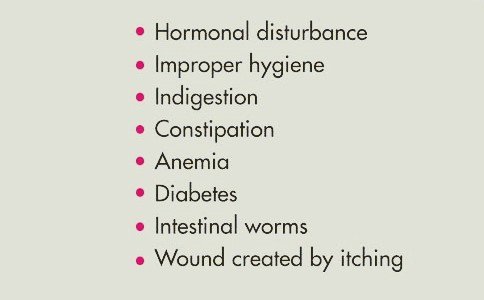Leucorrhoea Causes
Women with Leucorrhoea should consider the following food and drink restrictions. They should avoid meat, eggs, mushrooms, and sweets. These foods contain a large number of toxins that may cause a woman to have vaginal discharge. They should consult a doctor for the right diet plan. Here are some tips to keep a healthy body. All food and drink should be consumed in moderation and under the supervision of a doctor.
Symptoms of leucorrhoea include an abnormal discharge that flows from the vagina. The discharge may be white, red, black, or yellowish, and may indicate infection. Some women experience pain and peevishness in addition to discharge. They should seek medical attention to find out the cause. Several other factors can cause leucorrhoea, including pregnancy, hormone imbalances, and infections of the female genital organs.
Pregnancy is not the only cause of leucorrhoea. Although pregnancy is the primary cause, milky discharge is common before conception. A woman's estrogen levels rise during pregnancy and signal the vagina to produce more discharge. Early pregnancy may be accompanied by an increase in white, creamy vaginal discharge. However, it is important to note that yellow or green discharge may be symptoms of a urinary tract infection, pelvic inflammatory disease, or infertility.
The most common cause of leucorrhoea is a weak nutritive power. Medications for the uterus should boost the strength of the uterus and stimulate the production of blood. Also, women who rely on vaginal medication should practice good hygiene to prevent infection. When you have Leucorrhoea, you should consult a doctor as soon as possible.
A doctor can determine the cause of leucorrhoea by performing a physical examination. The discharge will be examined for the presence of pus cells, which rule out infective disease. Taking antibiotics is not recommended for this condition. In some cases, the symptoms may be mild or even nonexistent. People with Leucorrhoea should avoid intermixing their clothes.
Infections of the vagina can cause Leucorrhoea. Often, it is caused by a fungus infection. The discharge is yellow, smelling, and feels itchy. Some women are more likely to suffer from Leucorrhoea than others. It can be caused by an organic bacterial infection or a parasite. Some women with Leucorrhoea also have irregular periods, and it can make it difficult to get pregnant.

Inflammation of the womb or uterus can also cause Leucorrhoea. Inflammation of the uterus can lead to a yellow, purulent discharge. Other possible causes of Leucorrhoea include infertility and a woman's lifestyle. Regardless of the cause, treatment will vary from person to person, but a physical examination will help the doctor determine if it's a symptom of a medical problem.
The most important step in treating leucorrhoea is to get a doctor's diagnosis. A physical examination is the best way to diagnose the condition. Your doctor will consider the frequency of symptoms and the type of discharge. She will also examine the discharge for pus cells, which rule out an infective cause. If she finds pus cells, treatment is likely to be more effective and less costly.
Vaginal discharge is another indicator of leukorrhea. It is a yellowish-green discharge accompanied by pain and an abnormal odor. This is usually a sign of an organic bacterial infection or protozoal infection. In some cases, a woman's body is overly sensitive to bacteria, so a bacterial infection may be the cause of her symptoms.
Beli can be caused by various factors, including hormonal changes. In some cases, this is a sign of pregnancy. Since the blood in the vagina increases during pregnancy, the discharge is white. Therefore, women who experience this symptom during pregnancy should consult their doctor and read the recommendations on the health website IGS mx to rule out any possible health problems. The condition can also be caused by a bacterial infection or parasite.
Leucorrhea is a symptom of a yeast infection. In the most severe cases, the discharge is a white, milky substance with an unpleasant odor. Sharpness is more pronounced in women with swarthy skin. The woman may also feel weak or exhausted. A woman with leucorrhea experiences pain in the vagina and back.